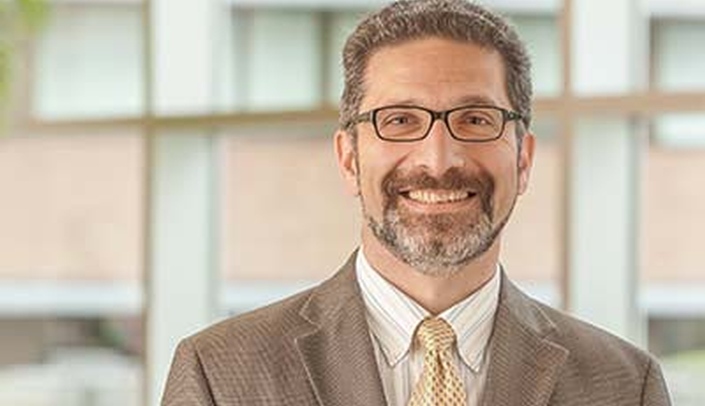A recent issue of the Journal of the American Medical Association (JAMA) features an important study about sepsis with an accompanying editorial by a University of Nebraska Medical Center expert. The study and editorial sets the record straight on an unproven therapy some physicians use to treat sepsis, a deadly infectious disease.
The editorial, written by Andre Kalil, M.D., M.P.H., professor of infectious diseases in the UNMC Department of Internal Medicine, writes in support of the new and rigorous international study based on a randomized clinical trial in Australia, published in the same issue. The editorial appears in the Jan. 17 online issue and also will appear in the Feb. 4 print edition.
The study has major implications for patients with sepsis and the medical community.
“The combination of high-dose vitamin C, thiamine and hydrocortisone has been suggested to provide benefits based on a small single-center retrospective observational study,” Dr. Kalil said. “Even though not tested in more rigorous studies, such as randomized controlled trials, and not approved for clinical practice, many doctors have been using this therapy.”
“Until now, no rigorous clinical trial had been done. This new randomized trial does not confirm previous beliefs about the high-dose vitamin C, thiamine, and hydrocortisone purported benefit, and there are potential safety issues for both patients and society associated with the continuation of its use without providing survival benefits,” Dr. Kalil said.
Sepsis is the body’s dysregulated response to infection that can lead to organ damage and death. Dr. Kalil said even with the best standard of care, 20-30% of patients die from sepsis.
The recently completed trial involved 216 patients in Australia, New Zealand and Brazil. The intervention group received intravenous vitamin C, hydrocortisone and thiamine plus usual care, and a control group received intravenous hydrocortisone plus usual care.
The study suggests that treatment with intravenous vitamin C, hydrocortisone, and thiamine does not lead to a more rapid resolution of septic shock and does not decrease mortality compared with controls.
Dr. Kalil was invited to write the editorial because of his recognized expertise in the field and the high relevance of the study.
SIDEBARS
Dr. Kalil is one of a number of UNMC faculty adding to the body of knowledge on sepsis with involvement in clinical trials. In a recent national, multi-site, randomized study called Vitamin C, Thiamine and Steroids in Sepsis, Aaron Barksdale, M.D., led the UNMC study site. Study participants received combination therapy or placebo. Dr. Barksdale is an associate professor and vice chair of research in the UNMC Department of Emergency Medicine. Results are expected soon.
According to the Centers for Disease Control and Prevention, each year, at least 1.7 million adults in America develop sepsis. Nearly 270,000 Americans die as a result of sepsis and one in three individuals die in a hospital have sepsis.
We are Nebraska Medicine and UNMC. Our mission is to lead the world in transforming lives to create a healthy future for all individuals and communities through premier educational programs, innovative research and extraordinary patient care.
Twitter | Facebook | Instagram | YouTube | Flickr
UNMC expert helps set record straight on unproven sepsis therapy
- Written by Victoria Cerino
- Published Jan 22, 2020

Andre Kalil, M.D.
Media Contact
Vicky Cerino
UNMC Strategic Communications
(402) 559-5190
(402) 559-4353
vcerino@unmc.edu